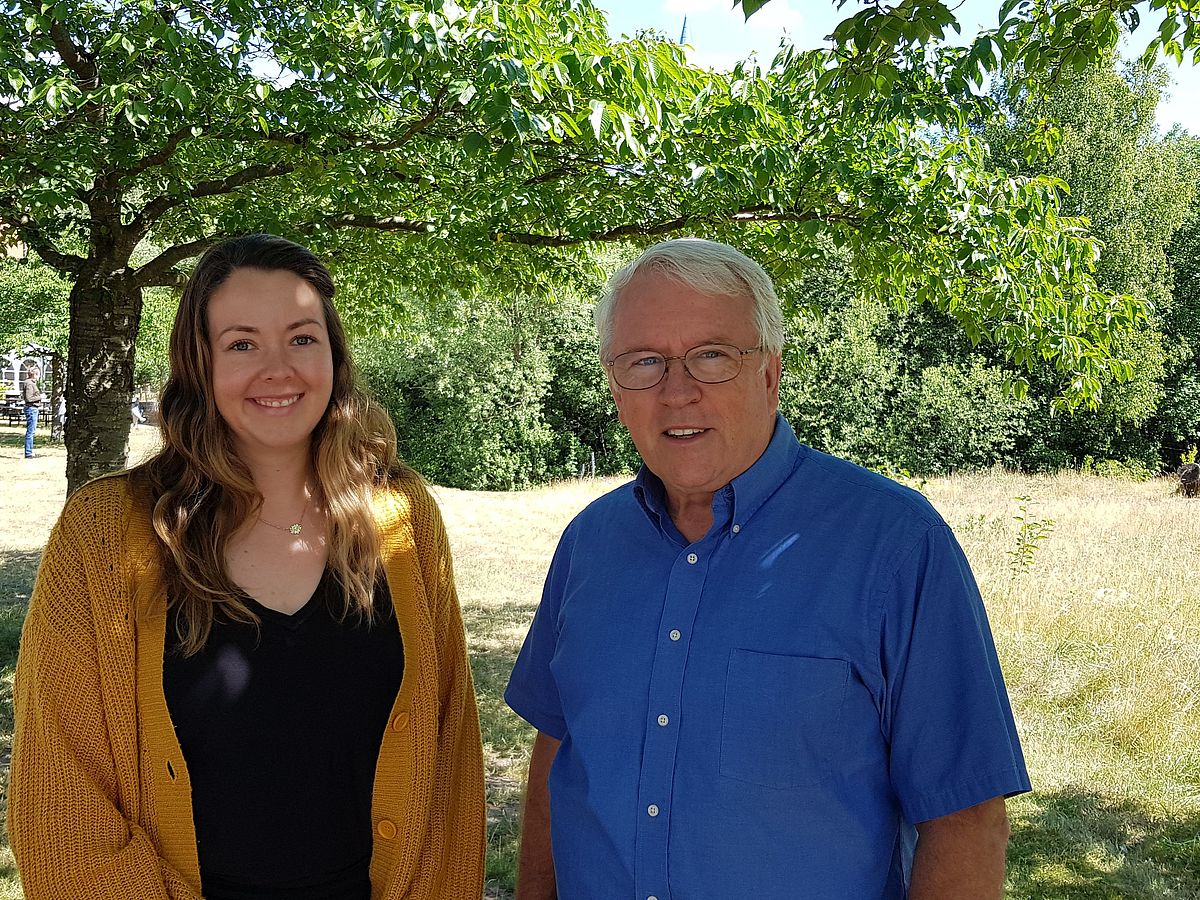Vibrant university partnership with Canada

Have you heard of Guelph? This Canadian city near Toronto with nearly 150,000 inhabitants is home to a young and vibrant university that has a remarkable number of things in common with the University of Bremen. Since 2011, the two universities have maintained a partnership that is one of the most exciting international projects at the University of Bremen. After a two-year break due to the pandemic, we had visitors from Guelph again, who brought with them their distinct recollections of Bremerhaven as a port of emigration.
For many years, Professor Donald Bruce was Dean of the College of Arts at the University of Guelph. The literary scholar is one of Uni Bremen’s ten Research Ambassadors, and he is the major driving force behind the university partnership on the Canadian side. His ancestors come from Mecklenburg, and his grandfather emigrated to Canada via Bremerhaven. "I found his name at the German Emigration Center in Bremerhaven," Prof Bruce tells us at our meeting. "In the museum there is also new section focussed on immigration to Germany. That really impressed me.” Which brings him to a subject that is a particular concern of his: social justice, diversity and inclusion. "Our universities are both characterised by the pioneering spirit of the 1960s and the awareness that research and science should not happen in the ivory tower, but rather should be open and accessible so that all of society benefits.” To that end, a joint comparative research project has been launched to study the challenges of diversity management in German and Canadian universities. Alongside are regular guest lectures that take place in Bremen and Guelph on a rotating basis, the Bremen-Guelph Lecture Series. More than 100 academics and students from Canada have already come to Bremen for exchange semesters, and around 60 have made the trip in the other direction.
Rebecca Breau from Guelph is the first doctoral student to complete a double degree at both universities, a binational degree known as a cotutelle. Her doctoral thesis has long been finished, but because of the pandemic, she was only now able to come for the official conferral of her degree. In her dissertation, she researched the factors that improve motor skills, physical fitness and cognitive function in young children. For this, she did a year-long research residency at the Leibniz Institute for Prevention Research and Epidemiology (BIPS) in Bremen. "It was quite different from how we work. In Canada, we come and go to the research facilities whenever we want. Here we had a compact eight-hour day. So it was very intensive and also very communicative."
Incidentally, both universities have about 20,000 students each. Guelph’s university was founded in 1964, Bremen's in 1971. With so much in common, what distinguishes one from the other? "I saw that you finally have two discount grocery stores on campus," says Prof Bruce. "This is something the university has struggled with for years, whether to allow such commercial service providers on campus. It's completely unthinkable for us in Canada. But of course we need businesses on campus." Smiling, Prof Bruce and Dr Breau say goodbye over a snack at the new on-campus bakery.

